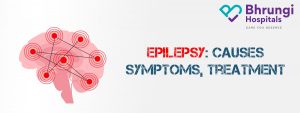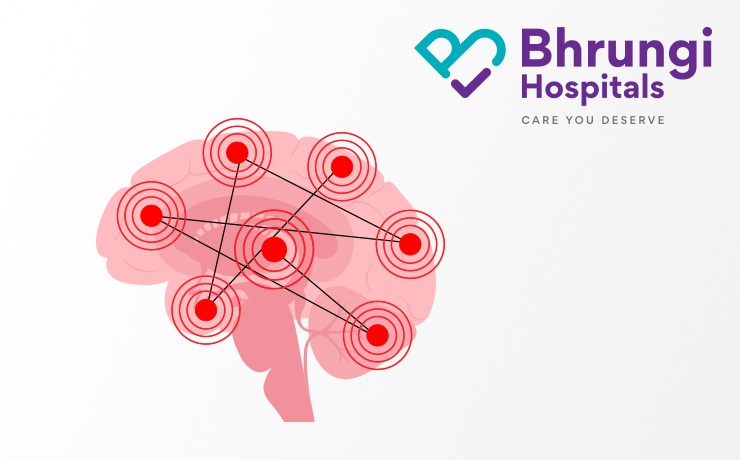
Epilepsy is a neurological disorder distinguished by abnormal nerve cell activity in the brain. After migraines, strokes, and Alzheimer’s, epilepsy is the fourth most common neurological disease.
Seizures can cause various symptoms, ranging from blank stares to loss of awareness and uncontrollable twitching. Some seizures are milder than others, but even minor seizures can be dangerous if they occur while participating in activities such as swimming or driving.
Seizures can be caused by anything that disrupts the normal connections between nerve cells in the brain, such as high fever, low blood sugar, alcohol or drug withdrawal, or a brain concussion. Anyone can have one or more seizures under these conditions. However, epilepsy is diagnosed when a person has two or more recurrent unprovoked seizures. Epilepsy can be driven by various factors, including an imbalance of nerve signaling chemicals known as neurotransmitters, tumors, strokes, and brain damage caused by illness or injury. In the vast majority of cases, there is no discernible cause of epilepsy.
| people with epilepsy experience nonepileptic seizures (NES ) | 20% |
| people with epilepsy experience generalized seizures | 30% |
| epileptic seizures are focal seizures | 60% |
Symptoms of Epilepsy
- Absence (petit mal) seizures are characterized by staring straight ahead, repetitive swallowing, and lapses into complete immobility for a few seconds, and they can occur several times per day.
- Tonic/clonic (grand mal) seizures typically last several minutes, start with a loss of consciousness and a fall, followed by rigidity, jerking motions, and urinary incontinence. Following the seizure, there is typically a period of confusion and deep sleep.
- Temporal lobe seizures can be identified by repetitive lip-smacking, aimless fiddling movements, and a sense of detachment from one’s surroundings. They are sometimes preceded by vague abdominal discomfort, sensory hallucination, and distorted perceptions such as a feeling of familiarity or having seen something before).
- Motor seizures, also known as Jacksonian seizures, begin with localized rhythmic twitching of muscles in a hand, foot, or face and can spread to the entire body. Seizures of this type are frequently followed by a period of weakness or paralysis.
How Is Epilepsy Treated?
The majority of epileptic seizures are managed with medication. Diet may also be used in conjunction with medications.
Surgery may be used in certain cases where medications and diet are ineffective. The type of treatment prescribed will be determined by several factors, including the frequency and severity of the seizures and the individual’s age, overall health, and medical history.
A correct diagnosis of the type of epilepsy is also necessary for selecting the best treatment.
Coping With Epilepsy
The treatment plan for epilepsy includes educational, social, and psychological treatment. The most significant thing you can do is seek help as soon as you realize you’re struggling. Epilepsy is best managed by a multidisciplinary team of doctors who can offer medical, psychosocial, and educational support. If you have difficulties with school, work, finances, relationships, or daily activities, you must speak with a member of the epilepsy team.
Early intervention will allow you to understand and deal with the many effects of epilepsy. Learning how to manage stress will assist you in maintaining a positive physical, emotional, and spiritual outlook on life.
FAQs
When does epilepsy usually begin?
They can cause a variety of symptoms. Epilepsy can trigger at any age, but it most commonly begins in childhood or over 60.
Is it possible to develop epilepsy all of a sudden?
Epilepsy and seizures can strike anyone at any age. In their lifetime, one out of every 26 people will develop epilepsy. Other health conditions, age, and race may increase the likelihood of epilepsy and seizures.
What foods should you abide away from if you have epilepsy?
Seizures may occur if your blood sugar levels suddenly rise or fall. As a result, it’s best to avoid high-sugar, processed foods like cookies, cakes, candy, and white bread. Ideally, it would help to eat a balanced diet that releases energy into your bloodstream at a slower, more consistent rate.









